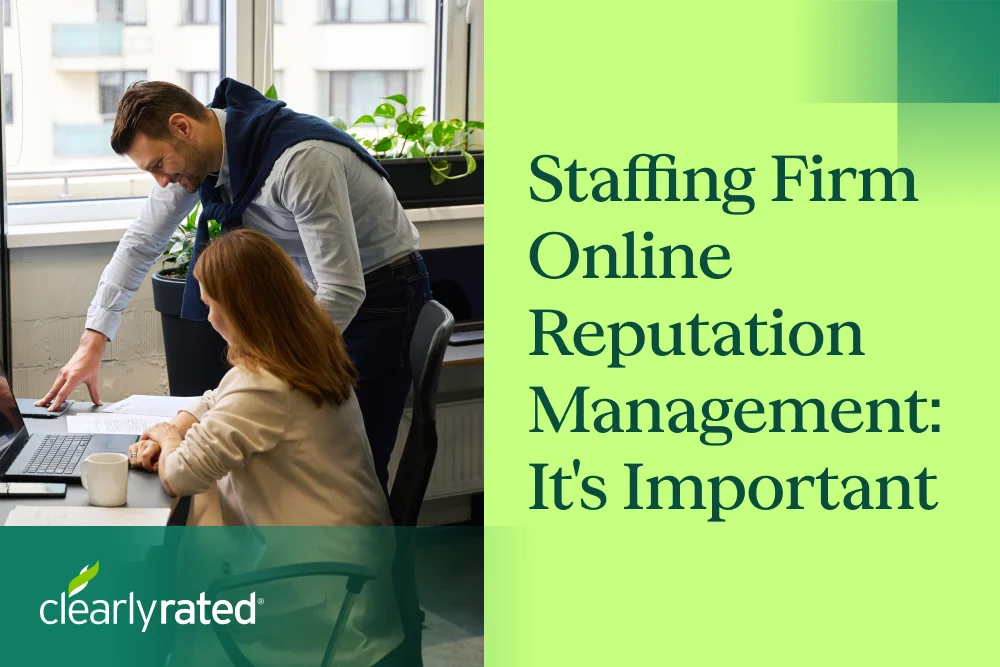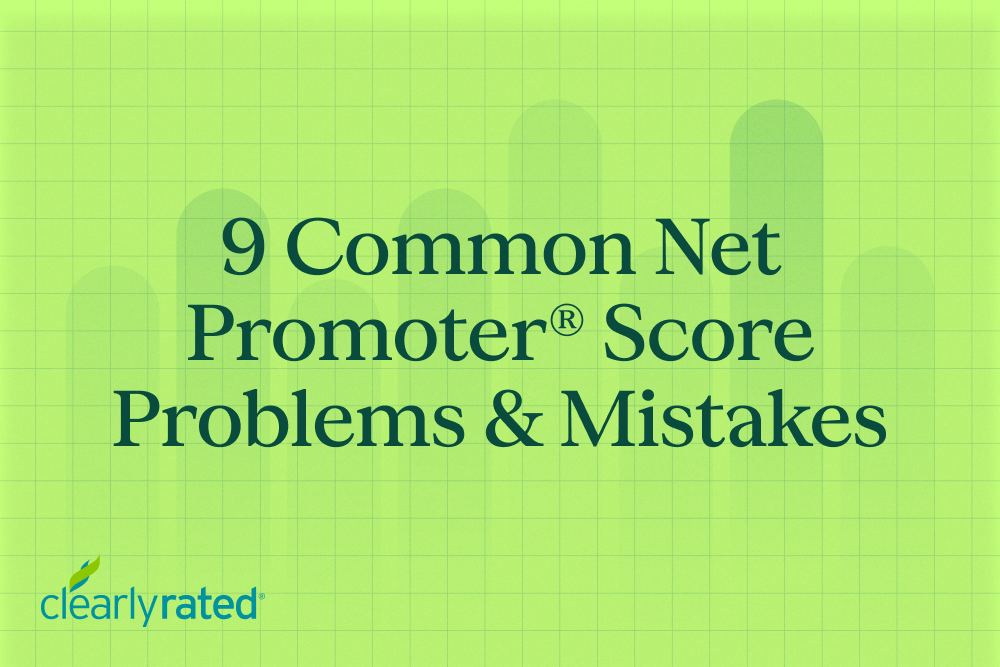Service Quality In Staffing Firms: The Relationship of Service Quality to Client Satisfaction

Uncertainty in the economy has created a difficult environment for staffing buyers, with many openly questioning how confident they feel about current conditions. According to our 2025 Staffing Buyer Insights Report, around 50% of buyers rate their country’s economy as only fair or poor, with Canada at 56%, the UK at 55%, the US at 51%, and Australia at 41%. When confidence drops, budgets shrink and risk aversion rises, forcing organizations to rethink how they manage their workforce.
Many are already preparing for change, with 78% predicting salary adjustments, 74% considering outsourcing functions, and 61% anticipating hiring freezes. In this climate, service quality in staffing firms matters more than ever because buyers want trusted partners who can help them adapt.
In this article, we’ll explore how service quality in staffing firms shapes client satisfaction, influences buying decisions, and drives stronger long-term relationships.
Why Service Quality Matters in Staffing
Staffing has always been a relationship-driven business because clients and candidates remember how they were treated long after the paperwork is complete. A strong relationship begins with consistent service quality, and when that experience is positive, clients are far more likely to return for future needs. They also recommend the firm to peers, which creates opportunities that would never come from cold outreach alone.
When firms commit to consistent, high-quality service, they see precise results in loyalty, customer retention, and long-term client growth. Many of the most successful firms maintain their competitive edge by focusing on three key areas that directly impact their ability to drive value through service.
These are the ones worth watching closely:
- Service quality in staffing firms supports deeper client trust, which drives repeat business and more qualified referrals.
- Strong staffing agency service quality helps recruiters deliver faster, more accurate placements that actually match client expectations.
- A candidate’s experience with your team has a direct effect on staffing firm reputation management, especially in competitive markets.
A candidate who feels respected, informed, and supported is likely to speak positively about the brand even if they do not secure the role. In contrast, poor communication or lack of feedback creates lasting damage, since negative experiences often spread quickly through networks.
Recruiters who build trust with both clients and candidates put themselves in the best position to grow accounts and win new ones. That kind of reliable performance leads to lasting client satisfaction among staffing firms, which becomes harder to lose when the service keeps meeting expectations without shortcuts or missteps.
The Link Between Service Quality and Business Growth
Today’s market rewards staffing firms that deliver exceptional service because every interaction matters and builds reputation. Here’s how strong service quality directly fuels staffing firm growth by improving experiences and boosting reputation through measurable shifts in client and candidate outcomes.
Stronger client experience drives lasting retention
Staffing firms earned an all-time high client net promoter score (NPS) of 45 in 2024, up sharply from -2 in 2019, according to our 2024 NPS® Staffing Industry Benchmarks, showing that clients respond when service quality improves.
When clients feel supported and confident, they stay engaged and choose to renew partnerships, helping firms deliver consistent revenue growth.
Positive candidate journeys build reliable talent pipelines
When candidates undergo a thoughtful and respectful hiring process, they enter with trust already established. People who understand the role clearly and feel heard during the process are more likely to accept offers, stay longer, and grow into the role with confidence.
A study found that recently hired employees who had strong candidate experiences were twice as likely to say their job matched what was promised and nearly three times as likely to say their job was as good as or better than they expected. That kind of clarity and confidence early on helps reduce turnover and supports faster, smoother placements.
Additionally, employees who went through a solid hiring process were over three times as likely to say they feel deeply connected to their company’s culture and highly satisfied with their work.
Reputation wins competitive advantage in RFPs
Firms that receive the “Best of Staffing” award report 58% higher client satisfaction and 60% greater candidate satisfaction compared to industry averages in 2023.
This recognition builds a valuable reputation that differentiates firms when buyers evaluate proposals.
Key Metrics to Measure Service Quality in Staffing Firms
Below are some of the standard metrics you can use to measure service quality in staffing firms:
Client Net Promoter Score (NPS)
NPS is one of the most widely used tools to measure satisfaction and loyalty in staffing. Created by Fred Reichheld at Bain & Company with Satmetrix, NPS gained recognition after being featured in the Harvard Business Review in 2003.
It uses a single powerful question that asks clients how likely they are to recommend your staffing services to a colleague or friend, with ratings given on a scale from 0 to 10.
The responses are divided into three groups:
- Promoters (9–10) are highly satisfied and likely to recommend your firm, helping improve reputation and growth.
- Passives (7–8) are content but not enthusiastic, meaning they stay neutral when it comes to referrals.
- Detractors (0–6) are dissatisfied and less likely to recommend you, and their feedback can harm your reputation.
You can calculate NPS by:
NPS = % of Promoters – % of Detractors
The NPS score ranges from -100 to +100. For example, if 70% of your respondents are Promoters, 20% are Passives, and 10% are Detractors, your NPS would be: 70% – 10% = 60.
Candidate satisfaction ratings
Candidate satisfaction ratings provide an honest look at how well job expectations match the actual experience. When satisfaction scores are low, it often signals that job descriptions or recruiter communication created false expectations.
A practical way to address this is by using a realistic job preview. For example, a logistics staffing firm may provide candidates with both the positive aspects, such as consistent schedules, and the problematic aspects, such as long physical shifts. By sharing both sides, firms build trust and avoid disappointment that damages their reputation.
Consistently high candidate satisfaction not only strengthens the relationship with placed employees but also builds a stronger long-term talent pipeline that clients will value.
Fill rates and time-to-fill
Fill rates and time-to-fill help measure efficiency and speed of placements. Time-to-fill looks at the calendar days from when a job requisition is approved until a candidate accepts an offer. Fill rate focuses on the percentage of job orders successfully filled.
These two measures together show how well a firm balances demand and supply in hiring. For example, if a specialized IT staffing role takes an average of 45 days to fill compared to 20 days for general roles, managers can set realistic expectations with clients and adjust recruitment strategies accordingly.
You can calculate fill rate by:
Fill Rate = (Total Completed Orders ÷ Total Orders) × 100
To use this measure effectively:
- Define a time frame, such as a day, week, month, or quarter
- Count the total number of job orders received during that time
- Count the number of completed and delivered orders within the same period
- Divide completed orders by total orders, then multiply by 100 to get the percentage
Similarly, you can calculate the time-to-fill by:
Time-to-Fill = (Sum of Time to Fill for All Roles ÷ Number of Roles Filled)
Here’s how you can use it:
- Record the start date when the job was posted or approved, and the end date when the offer was accepted
- Subtract the start date from the end date for each role to get the total number of days
- Add the number of days across all roles filled during the chosen time frame
- Divide the total by the number of roles to get the average time-to-fill
Tracking both fill rate and time-to-fill helps recruiters provide accurate timelines, forecast workload better, and maintain trust with hiring managers who depend on predictability.
Client retention and renewal rates
Client retention and renewal rates provide a direct measure of long-term satisfaction. A high retention rate indicates that clients prefer to continue working with your staffing firm rather than switching to competitors. Renewal rates further indicate whether contracts and service agreements continue without disruption.
On the one hand, the retention rate can be calculated as:
Retention Rate = ((Total Clients at End of Period – New Clients Acquired) ÷ Total Clients at Start of Period) × 100
On the other hand, the renewal rate can be calculated as:
Renewal Rate = (Number of Renewed Contracts ÷ Total Contracts Up for Renewal) × 100
For example, if 80% of clients renew contracts year after year, it signals strong service quality that outweighs competitive offers. On the other hand, a declining renewal rate signals potential gaps in service delivery that require quick correction before clients exit entirely.
Referral and word-of-mouth growth
Referrals and word-of-mouth growth act as powerful signs of satisfied clients and candidates. In staffing, every referral directly reflects the level of trust someone places in your services, making it one of the most effective strategies for how to get clients for a staffing agency.
The referral rate can be calculated as:
Referral Rate = (New Clients or Candidates from Referrals ÷ Total New Clients or Candidates) × 100
For instance, if a client refers another department within their organization, it not only indicates satisfaction but also expands your influence inside the company. Similarly, when placed candidates share positive experiences with peers, it widens your reach and builds credibility without the cost of paid marketing.
Common Challenges in Maintaining Service Quality
Keeping service quality consistent sounds simple, but staffing firms often face real obstacles that impact results. These challenges affect relationships with clients and candidates, and they directly influence long-term business growth.
Let’s look at the most common ones:
- High recruiter turnover leads to inconsistent service: Frequent recruiter changes disrupt relationships with both clients and candidates, making communication less reliable and weakening the trust needed for strong long-term partnerships.
- Difficulty collecting feedback at scale reduces valuable insights: Gathering consistent feedback from every client and candidate takes time and effort, and without it, firms lose the chance to identify service gaps that directly influence satisfaction and loyalty.
- Balancing client and candidate needs creates ongoing complexity: Clients often push for quick placements, while candidates look for roles that align with career growth, and meeting both expectations requires careful effort that rarely comes without friction.
- Measuring the ROI of service improvements lacks immediate clarity: Operational changes, such as better communication or faster response times, do not always show quick financial returns, making it difficult for leaders to directly connect service quality improvements with revenue impact.
Best Practices to Improve Service Quality in Staffing Firms
To improve the service quality in staffing firms, it's important to adopt practices that focus on strengthening relationships, building trust, and using data to drive decisions that lead to measurable improvements.
Here’s what you need to look out for:
- Collect feedback regularly from both clients and candidates: Regular feedback from clients and candidates gives staffing firms clear direction on what is working and what needs improvement. When firms track responses across different stages of the hiring process, they can identify patterns that help refine communication, job matching, and long-term satisfaction levels.
- Train recruiters on relationship management and responsiveness: As the first point of contact for clients and candidates, recruiters' communication style has a direct impact on staffing firm client satisfaction. Training programs that focus on responsiveness, empathy, and problem-solving build stronger trust and make every interaction feel more valuable.
- Use data-driven decision-making to improve service: Data plays a critical role in evaluating service quality in staffing firms because it highlights performance trends across placements. By studying metrics such as time-to-fill, client retention, and candidate satisfaction, firms can make clear adjustments that improve long-term outcomes.
- Showcase client satisfaction scores to build trust: Sharing satisfaction ratings or NPS with both prospective and current clients adds credibility to your services. Platforms like ClearlyRated provide staffing firms with independently validated scores, which strengthen reputation and help highlight service quality during competitive pitches.
- Continuously benchmark performance against industry standards: Comparing results with industry benchmarks helps staffing firms understand whether their service delivery meets or falls behind expectations. Using external benchmarks such as ClearlyRated’s insights adds credibility to these comparisons and motivates recruiters to improve year after year.
ClearlyRated: The Benchmark for Staffing Service Quality
Staffing firms often claim they deliver great service, but proving that claim with credible data makes all the difference when clients have options. This is where a client and employee experience platform like ClearlyRated plays a central role by helping firms turn service quality into measurable proof.
As the industry leader in client and talent satisfaction surveys, ClearlyRated provides staffing firms with structured insights that go far beyond internal assumptions. Here are specific ways ClearlyRated supports staffing agencies:
- Conduct NPS surveys for both clients and candidates
- Provide benchmarking data across the staffing industry for context and comparability
- Generate verified ratings and testimonials that build credibility in marketing efforts
- Help firms use service quality as a reputation advantage in competitive bids
Businesses that use ClearlyRated’s surveys and benchmarks often secure higher renewal rates, attract more referrals, and win more new business. By connecting satisfaction data with reputation-building tools, ClearlyRated helps staffing firms strengthen loyalty with existing clients while competing more effectively for new opportunities.
Case in point: TekCom Resources faced high candidate falloffs and needed a way to prove their value to skeptical prospects. They partnered with ClearlyRated to validate their service quality through verified client feedback, awards, and NPS data. As a result, they reduced falloffs by nine percent, boosted referrals by 50%, and achieved their highest quarterly revenue to date.
Why Service Quality Will Always Win in Staffing
The most successful staffing firms have one thing in common: they make service quality a core part of how they work.
When recruiters listen closely, follow through consistently, and show respect at every step, both clients and candidates stay longer and refer others. Measuring satisfaction across both sides helps leaders see exactly what needs to change and where they’re already winning. ClearlyRated gives staffing firms the tools to turn that kind of feedback into real proof of value, whether that’s a standout NPS, a verified testimonial, or an award that builds instant trust.
Schedule a meeting today and start turning your reputation into tangible results.
FAQs





.png)


%20(1).png)

.webp)
.png)






%5B1%5D.webp)







.png)










_%20The%20Ultimate%20Guide.png)





.png)




















%20in%20the%20Workplace.png)










.png)

%20and%20how%20can%20you%20increase%20it.png)
_%20A%20Step-by-Step%20Guide.png)

.png)
.png)




_.png)



%20in%202028.png)


_%20The%20Ultimate%20Guide%20(2024).png)






